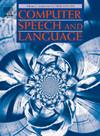Multi-turn response selection with Language Style and Topic Aware enhancement
IF 3.4
3区 计算机科学
Q2 COMPUTER SCIENCE, ARTIFICIAL INTELLIGENCE
引用次数: 0
Abstract
The multi-turn response selection is an important component in retrieval-based human–computer dialogue systems. Most recent models adopt the utilization of pre-trained language models to acquire fine-grained semantic information within diverse dialogue contexts, thereby enhancing the precision of response selection. However, effectively leveraging the language style information of speakers along with the topic information in the dialogue context to enhance the semantic understanding capability of pre-trained language models still poses a significant challenge that requires resolution. To address this challenge, we propose a BERT-based Language Style and Topic Aware (BERT-LSTA) model for multi-turn response selection. BERT-LSTA augments BERT with two distinctive modules: the Language Style Aware (LSA) module and the Question-oriented Topic Window Selection (QTWS) module. The LSA module introduces a contrastive learning method to learn the latent language style information from distinct speakers in the dialogue. The QTWS module proposes a topic window segmentation algorithm to segment the dialogue context into topic windows, which facilitates the capacity of BERT-LSTA to refine and incorporate relevant topic information for response selection. Experimental results on two public benchmark datasets demonstrate that BERT-LSTA outperforms all state-of-the-art baseline models across various metrics. Furthermore, ablation studies reveal that the LSA module significantly improves performance by capturing speaker-specific language styles, while the QTWS module enhances topic relevance by filtering irrelevant contextual information.
多回合响应选择与语言风格和主题意识增强
多回合响应选择是基于检索的人机对话系统的重要组成部分。最新的模型采用预训练的语言模型来获取不同对话上下文中的细粒度语义信息,从而提高响应选择的精度。然而,如何有效地利用说话人的语言风格信息和对话语境中的话题信息来增强预训练语言模型的语义理解能力,仍然是一个需要解决的重大挑战。为了解决这一挑战,我们提出了一种基于bert的语言风格和主题感知(BERT-LSTA)模型,用于多回合响应选择。BERT- lsta在BERT的基础上增加了两个不同的模块:语言风格感知(LSA)模块和面向问题的主题窗口选择(QTWS)模块。LSA模块引入了一种对比学习方法,从不同说话者的对话中学习潜在的语言风格信息。QTWS模块提出了一种话题窗口分割算法,将对话上下文分割成话题窗口,使BERT-LSTA能够提炼和整合相关的话题信息,从而进行响应选择。在两个公共基准数据集上的实验结果表明,BERT-LSTA在各种指标上优于所有最先进的基线模型。此外,消融研究表明,LSA模块通过捕获说话者特定的语言风格显著提高了性能,而QTWS模块通过过滤不相关的上下文信息来增强主题相关性。
本文章由计算机程序翻译,如有差异,请以英文原文为准。
求助全文
约1分钟内获得全文
求助全文
来源期刊

Computer Speech and Language
工程技术-计算机:人工智能
CiteScore
11.30
自引率
4.70%
发文量
80
审稿时长
22.9 weeks
期刊介绍:
Computer Speech & Language publishes reports of original research related to the recognition, understanding, production, coding and mining of speech and language.
The speech and language sciences have a long history, but it is only relatively recently that large-scale implementation of and experimentation with complex models of speech and language processing has become feasible. Such research is often carried out somewhat separately by practitioners of artificial intelligence, computer science, electronic engineering, information retrieval, linguistics, phonetics, or psychology.
 求助内容:
求助内容: 应助结果提醒方式:
应助结果提醒方式:


